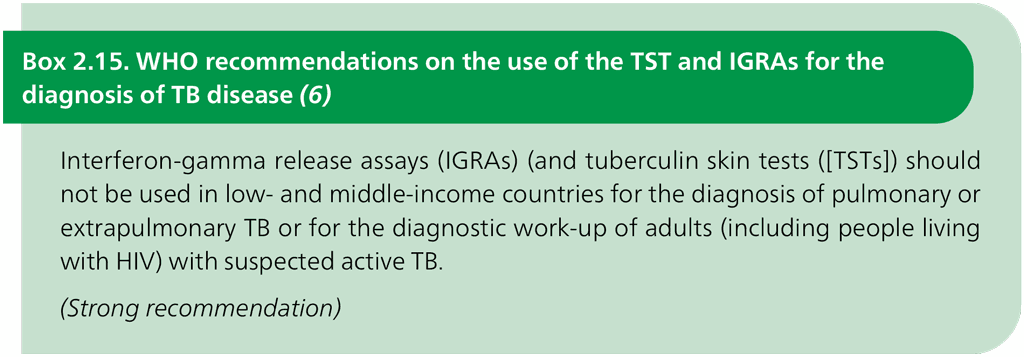Links de passagem do livro para 1266
Based on reviews of available data, WHO has recommended against using tests that do not provide reliable information for diagnosing TB. In 2011, WHO recommended that commercial serological tests should not be used for the diagnosis of pulmonary and extrapulmonary TB because the commercial serodiagnostic tests available at that time provided inconsistent and imprecise findings, there was no evidence that using those commercial serological assays improved patient outcomes, and the tests generated high proportions of false positive and false negative results that may have an adverse impact on people’s health (53).
WHO recommendations are specific for intended uses; sometimes, even a test that is recommended is not recommended to be used for a specific purpose. For example, the various classes of NAATs (LC-aNAAT, LC-mNAAT and MC-aNAAT) are not recommended for use in monitoring the response to treatment.
WHO’s recommendation is that tests for TB infection may be used in low- and middle-income countries (LMIC) to aid in the detection of TB infection. However, such tests should not be used for the diagnosis of pulmonary or extrapulmonary TB (Box 2.15), or for the diagnostic work-up⁵ of adults (including HIV-positive individuals) suspected of having active TB.

5 A diagnostic work-up involves gathering information about a patient’s health, performing tests and making a diagnosis.

 Opinião
Opinião